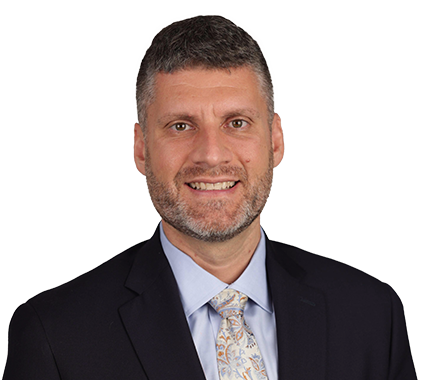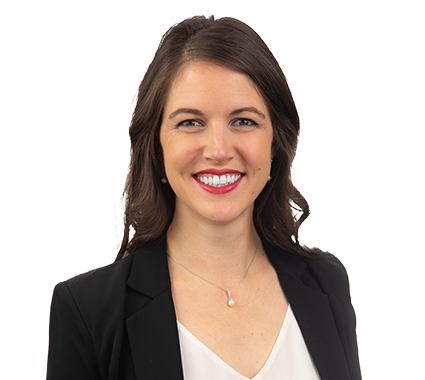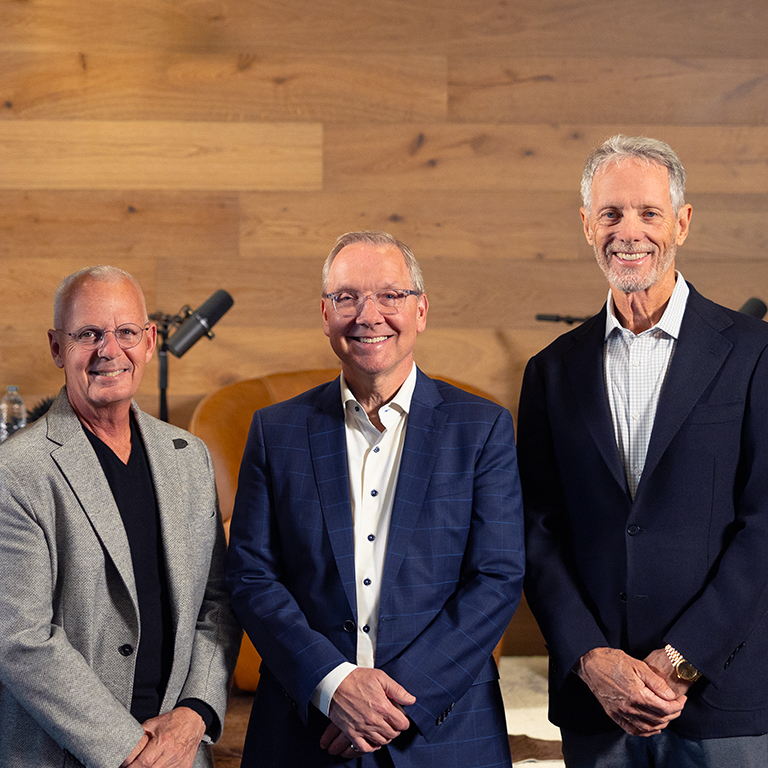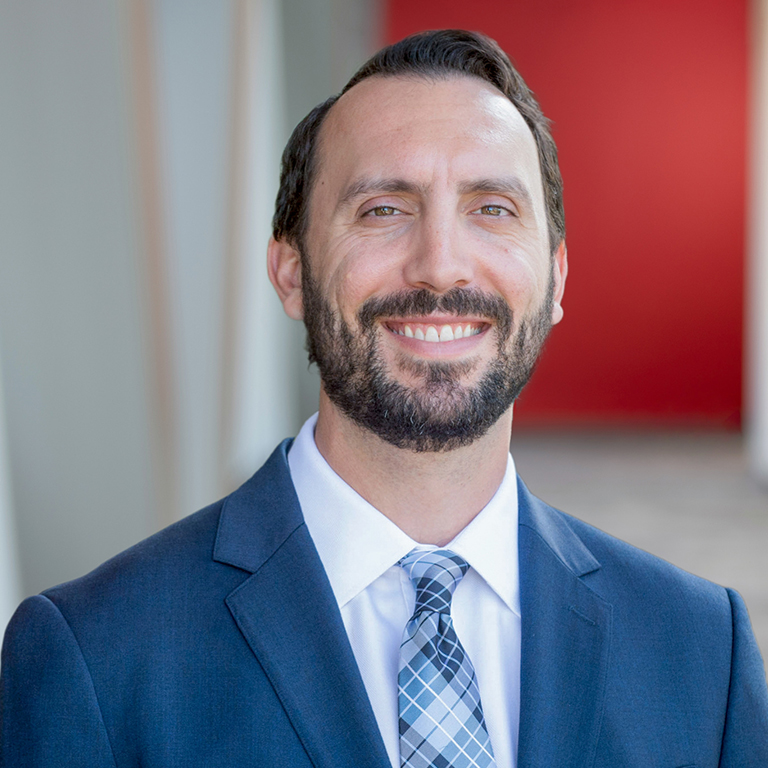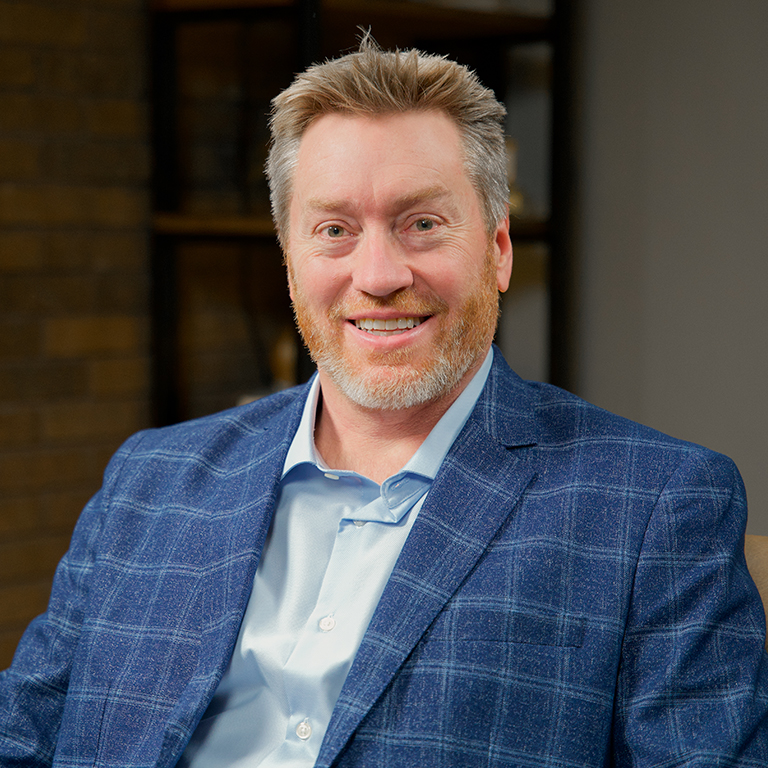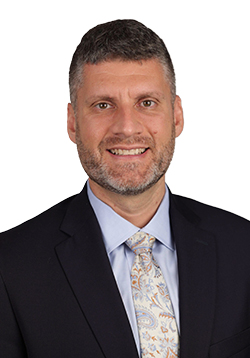
Do you have questions about tackling student loan debt, funding your child’s college education, or paying off your mortgage early? So do a lot of other people!
For the latest episode of Common Cents on the Prairie™, we compiled some of the most common questions sent to us by viewers, and I sat down with Don Rahn — a Certified Financial Planner and our Wealth Advisory Manager — to answer them. Our discussion covers topics ranging from student loans to mortgages to retirement.
You can read a recap of our conversation below, watch the full episode, or listen to Common Cents on the Prairie on your favorite podcast app.
What’s the best way to tackle student loans quickly while still trying to pay for life, build up my savings, and save for retirement?
Don: I would start by referring people to your episode with Eric and Laryssa Fahrendorf. What I picked up from that episode is that first, you have to face your debt, because it’s there. It’s just about prioritizing it and making it a goal and figuring out how that fits in your budget. You can also consider looking at the interest rates on the various loans to see if there are ways to consolidate that and get it into one large payment.
Adam: You know, I had a huge amount of student loans, and some of it comes down to timing too. If you have a small amount in loans, you can maybe focus on those right away. But if it’s a big amount and you know it’s going to take years to pay off, then you have to provide more balance and say, “Well, I can’t live with a tiny emergency fund forever. Nor can I put off saving for retirement for ten years.”
When is a good time to discuss my financial situation with an advisor?
Don: Ideally, when you graduate from college and start your career. The trouble is finding a financial advisor who has your best interests at heart.
Adam: The trouble with the advisory world is that, usually, the people who are willing to work with young professionals are looking to sell them high-cost insurance products. Since there are not a lot of investable assets, that’s how the advisor is going to make money. But good advisors are out there. It’s just going to take those young professionals to look to find an advisor who has their best interests at heart, versus just going with a buddy from college who’s now selling insurance.

I funded my own college education, and now that I’m a parent, I have mixed feelings about paying for my kid’s college. How important is it to save for our children’s college?
Don: How important of a goal is it for you? You do not want saving for your kid’s education to come in front of saving for your retirement, having an adequate emergency fund, and some of these eight steps we have in our one-pager that we share with clients. You want to have those things down and on the right track before you start worrying about saving for college. And then it comes down to means. Do you have the means? But if you do want to provide for that or part of that education, then I recommend products like the 529 plan; you get tax-free growth as long as it’s used for educational purposes.
Adam: It’s like what you hear in an airplane: put on your own oxygen mask before helping others. Sometimes it’s a very emotional decision for parents. Maybe they had student loans, or their parents paid for their college, so they want to do the same thing. Or they don’t want their kids to be saddled with a bunch of student loans, but they put that in front of their own financial future — which is a mistake. There are no scholarships for retirement, but there are lots of ways to pay for college. So, it’s critical that you have your own house in order before you try to save for your kid’s college.
When I was in college 15 years ago, my professors always said to save 15% of your salary in your retirement account. That has been my benchmark. Now, I’m hearing we should shoot for 20%. Do you expect that recommendation to keep rising?
Don: I don’t know how much more it can go up than 20%. But I think it’s a factor of what your household income is. The higher the household income, the more likely you are to hit that 20% benchmark. And you might not hit that with your first job out of college because you’re balancing all the other priorities, but 20% is a good benchmark for higher-income-earning households.
Adam: I think it’s important for young people in particular to hear this. They’re coming out of their first job, maybe they’ve got student loans, they’re paying rent, and the cost of everything keeps rising, and they think, ‘20%?! Are you kidding me?!’ But that doesn’t mean that’s where you start. You can raise that contribution by a percentage or two every year as you get pay increases; you’re not going to notice that extra money that’s going towards your retirement. Unfortunately, what we see is a lot of times people hit that benchmark a little too late — they reach their fifties and that’s when they get serious about saving for retirement. But by that time, they hadn’t been saving nearly enough all those years, and it can be hard to catch up.
Should I pay off my home early?
Don: Before you start paying off your home early, you want to make sure that your retirement goal is on track. The years of compounding in a retirement account can’t be made up for when you’re 50 to 55. Maybe look at maxing out your 401(k) or your 403(b) first, but then I think it’s a great goal because it’s going to put you in a better position during those later years of retirement savings to keep putting money away.
Adam: If you’re meeting all of the big benchmarks for saving for retirement and you still have extra money, then go ahead and put it into the mortgage.

How often should I rebalance my 401(k)?
Don: I would say not too often. You’re better off setting it and forgetting it a little bit. But once a year you should be taking a look at it. Most 401(k) plans have target-date retirement funds, which are a great option for the novice investor. Basically, you pick a target-date fund for the year in which you think you’re going to retire, and that’s automatically rebalanced for you, and the risk exposure is dialed back as you get closer to retirement.
How should I position my portfolio as I get closer to retirement?
Don: The philosophy is that you dial back risk as you get closer to retirement. You want to have enough in bonds and cash so that, if there’s a market correction, you have safe assets to rely on to meet your needs and that you don’t have to sell stocks in a downturn.
What should I do with extra cash today?
Don: If you’ve hit all of those goals that we’ve talked about, max out your 401(k) first. We’ve had people nearing retirement with extra cash on the sidelines, and we’ve asked them to just max out their 401(k) and hardly even have a paycheck. You can do that as one last tax-savings strategy right before retirement. Then, I would say an investment agency account makes a lot of sense. That’s the type of account we have in our fiduciary trust investment division; it’s very flexible and a great place to stash away cash.
If you have more questions that we didn’t touch on today — or maybe you just want to talk about your own personal situation — reach out. We’d love to meet and answer your questions!
Any comments, insights, or strategies discussed in this article are intended to be general in nature and, therefore, may not be suitable for you and your situation, whatever that may be. Before acting on anything written here, please consult with your attorney, CPA, and/or your financial advisor.
